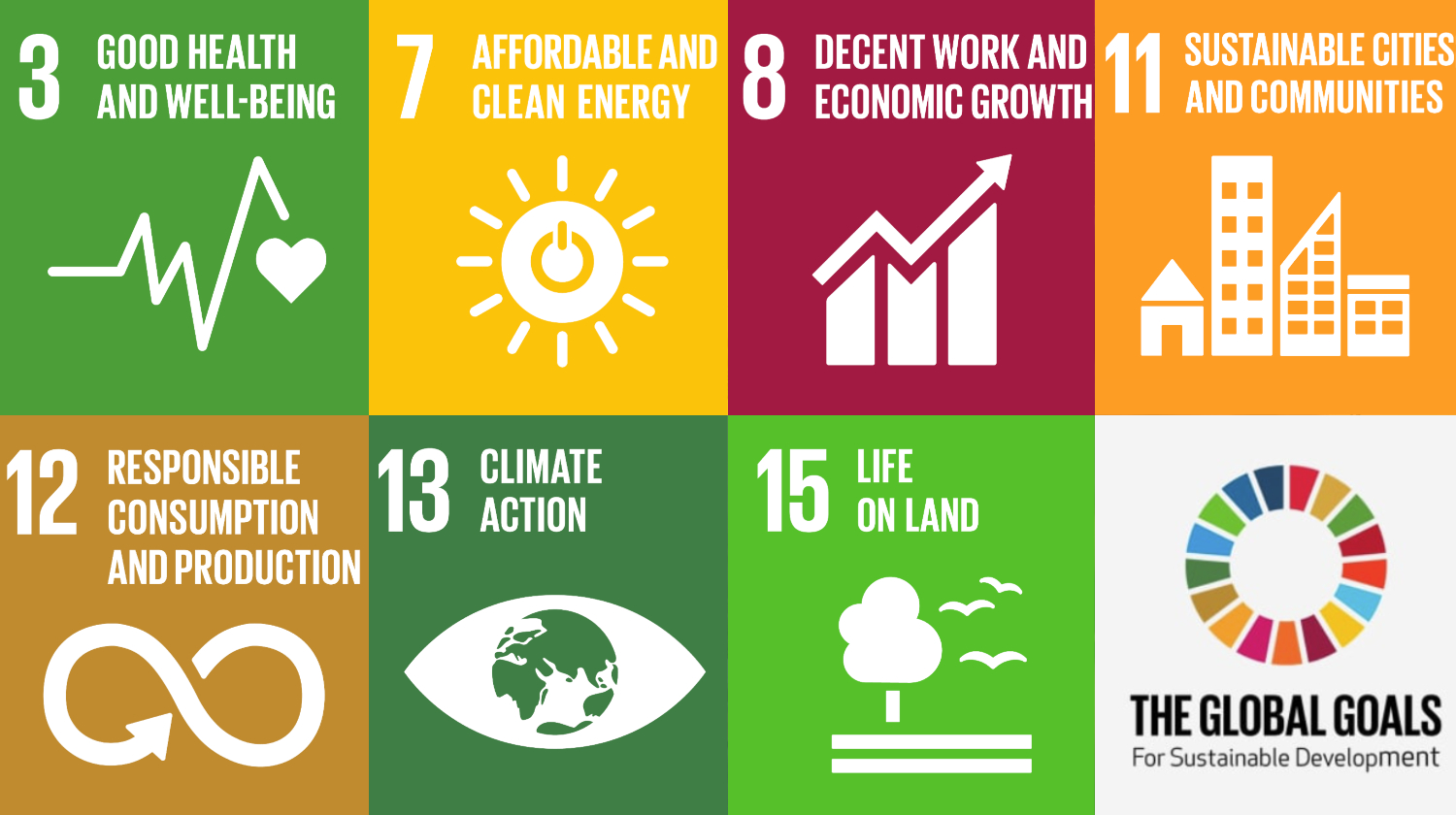We have prioritized among the UN's 17 global sustainability goals and selected seven goals where we can contribute the most to sustainable development.
What is Agenda 2030?
A UN summit meeting in 2015 adopted the document Agenda 2030 – for sustainable development. Agenda 2030 is an action plan that points out the challenges that must be met if we are to achieve sustainable development, focusing on eliminating poverty, reducing inequalities and injustice, promoting peace and justice, and resolving the climate crisis. With the help of 17 Global Goals, also called Sustainable Development Goals (SDGs), and 169 SDG targets, Agenda 2030 will guide the work towards a sustainable future. Each country develops its own strategy, and companies have a key role in the work to achieve the Global Goals by 2030.
Our prioritized goals
In 2020, we analysed the connection between the UN’s Sustainable Development Goals and our own sustainable operational targets, and prioritised six global goals. Following a review and update in 2024, we now have seven global goals that relate to our operational targets (for Goal 15, Life on Land, we currently have no measurable internal target), and where we believe we can make the most significant contribution to sustainable development.
Goal 3: Good Health and Well-Being
AF Bostäder works systematically with issues related to mental health, alcohol, and drugs for both employees and students, through wellness initiatives, events, training activities, and the information project Hjälp. Parts of this are measured through our target for a Value-creating workplace, where we aim to achieve a score of 4.5 out of 5 in the wellbeing index (based on the staff survey) by 2029.
Goal 7: Affordable and Clean Energy
Properties consume a lot of energy, and AF Bostäder works goal-oriented with energy efficiency improvements. We shall reduce the volume of purchased energy (kWh/kvm) in properties that became operational before 2023, by 10% by 2029, compared with the base year of 2024.
Goal 8: Decent Work and Economic Growth
AF Bostäder offers a value-creating workplace based on collective agreements, systematic work environment efforts, expanded wellness activities, continuous staff surveys, and skills development. Parts of this are measured in our target for a Value-creating workplace, where we aim to achieve a score of 4.5 out of 5 in the wellbeing index (based on the staff survey) by 2029.
The financial conditions of the operations are measured, among other things, by our financial target, which states that the company's annual result before allocations and tax shall amount to at least SEK 30 million.
Goal 11: Sustainable Cities and Communities
AF Bostäder strives to offer housing and living environments that consider social, economic, environmental, and cultural sustainability. Parts of this are measured in our NKI-target, where we aim to achieve a score of NKI 82 out of 100 in the customer satisfaction survey Nöjd Studbo Live by 2029.
Goal 12: Responsible Consumption and Production
Waste is generated throughout all parts of our operations as well as by our tenants. We shall minimize the generation of waste and contribute to increased knowledge about consumption, reuse, waste sorting, and more. We shall increase the percentage of sorted waste to 62% of the total waste volume by 2029.
Goal 13: Climate Action
AF Bostäder has a significant negative climate impact due to greenhouse gas emissions from new construction and property management. When constructing new buildings, we establish green areas, sedum roofs, and stormwater retention systems to prevent flooding. According to our climate target, we shall reduce the volume of greenhouse gas emissions for each new construction project (kg CO₂e/GFA) and, by 2029, have introduced climate impact calculations for all maintenance and development projects that exceed SEK 1 million.
Goal 15: Life on Land
New student housing is primarily built on already developed land. Existing greenery is preserved where possible, and sedum roofs are added when needed. Biodiversity is considered in the design of outdoor areas, sometimes with spaces specifically intended for animals and insects.
